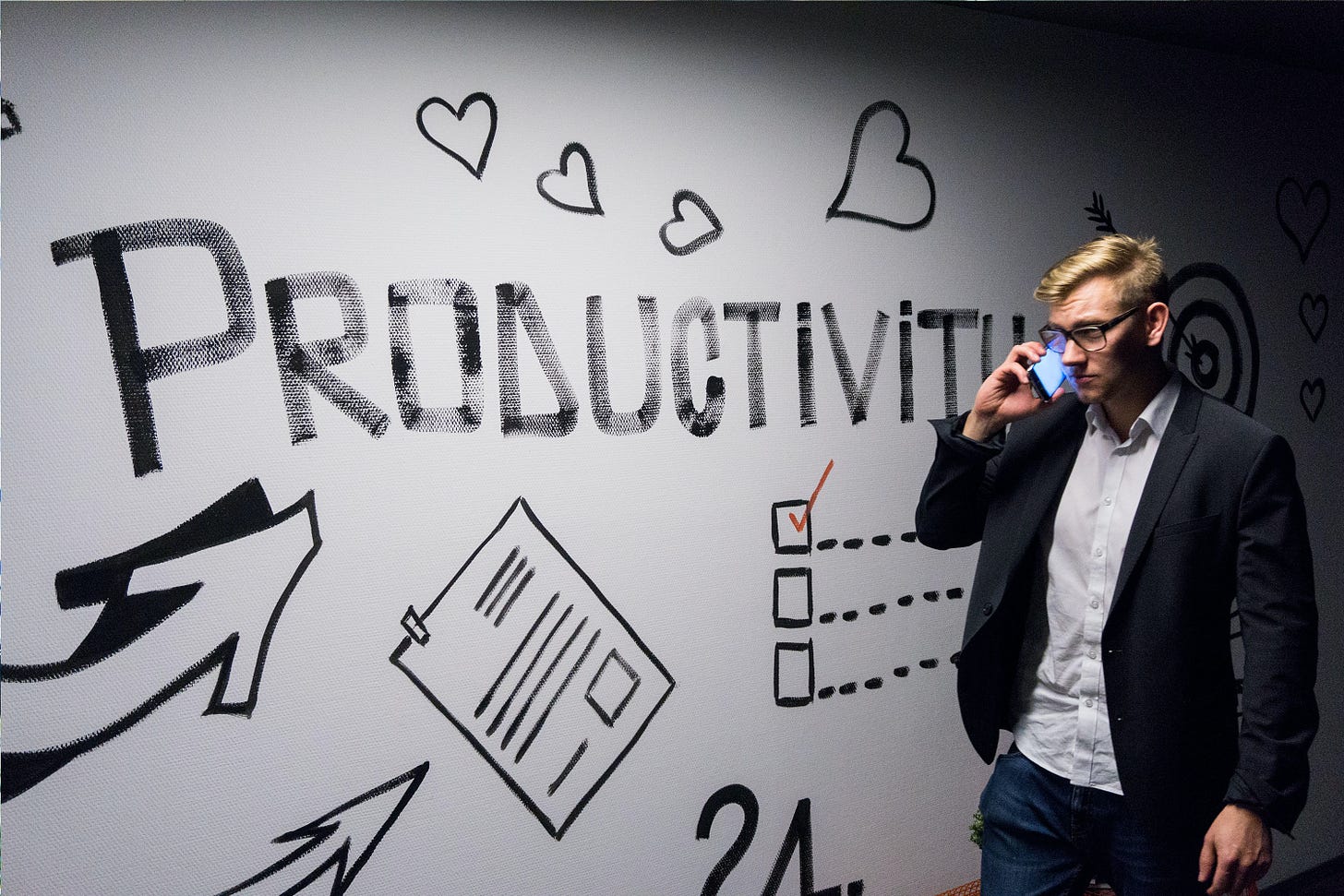
For those of you who’ve been reading this blog, you might know that I’ve been writing for several years now.
I’ve noticed a trend that is slowly starting to show up and I think it’s worth putting in front of you.
For years I was obsessed with productivity. I was working smarter and I was working harder. I worked on multiple projects. I worked 60-80 hrs/week. I worked on everything. I worked on passion projects, side projects, other people’s side projects, etc.
My main goal was a massive volume of output. I’m sure that you think I’m going to talk about quality vs quantity next—and you’re not completely wrong, but stick with me for a minute.
What I eventually discovered was 2 things.
There’s an upper limit to my functional capacity.
Having a huge impact isn’t cool if it’s killing me in the process.
Somewhere, I got this idea in my head that I needed to suffer in order for my work to be valued. Don’t ask me how or why. I am honestly still trying to figure that out.
Nevertheless, I non-consciously held this belief that work was only real work if I was suffering to make it happen. It needed to be hard. It needed to be exhausting.
Don’t get me wrong, I’m still an advocate for good, hard work. In fact, I still love it. The only trouble is when those things are bound together exclusively.
Let me unpack #1 and #2.
#1 - The upper limit of function
Working an 80 hour week can still feel good. I like feeling like I’ve exhausted myself from hard work. There’s a sense of accomplishment that comes with it. But rest and recovery time is more important than I initially thought. To make this point, let me tell you about the time I worked 5 100-hour weeks in a row.
Just to be clear, you can work 60-80 hours a week and still have downtime. at 60 hours a week, you only need to work 12 hours a day through a 5 day work week. You still have weekends. At 80 hours, you are now adding 10 hour days on the weekends. Still, not the end of the world. You still have time to exercise, sleep, and maybe catch an episode of the Mandalorian. The trouble is at 100 hours, you are now sacrificing things like breaks, downtime, and fun time, in addition to basic needs like sleep.
As soon as you wake up, you are in front of a screen, working.
I hit my limit. I was still functioning after 5 straight weeks of this, but I noticed something interesting. I was making more mistakes. And the mistakes I was making were not only adding on more work, but they were stupid mistakes. They were mistakes I shouldn’t have been making.
So yes, I was awake and working. Yes, I could speak in complete sentences and not fall asleep, but I was making it all happen with reduced brainpower. I wasn’t just not at my best. I was worse than my average self.
This was the wall I needed to hit to realize that I was pushing myself too hard.
#2 - Sustainable, disproportionate impact
At some point, I had to look at my effort and my impact and reconcile. Was this amount of effort worth it? At the time, I was still new to consulting and I was still figuring out what I was doing and who I could help. I was watching veteran consultants, who had built up specialized expertise, rake in more dollars per hour than I could imagine was possible.
It became clear that total revenue, or total impact wasn’t the goal. Brute force just wasn’t sustainable anymore. The goal was to increase my impact per hour. The goal was to increase my rate of dollars per hour.
What’s more cool than suffering to make something small happen? Making something big happen and feeling like it was no big deal.
That’s cool.
I needed to figure out how to create so much impact for others that it seemed disproportionate to my effort. I needed it to be disproportionate and I needed to be able to do it again, and again, and again.
The disruption of productivity culture
So, after years of indulging my productivity obsession, I’ve realized that it’s just not the primary factor. I’ve had to come to terms with the idea that my goals were actually selfish in the beginning, focusing on my own suffering instead of the actual output itself.
We see the whole “hustle” thing everywhere now. Everyone has a side-hustle. It seems like everyone is subscribing to the “rise and grind” philosophy.
And yes, of course, hard work is part of the formula. Obviously.
But it’s not a substitute for a focus on impact, and it’s not going to guarantee a good outcome.
Instead of focusing on personal sacrifice as a measure of productivity, let’s try looking at the efficiency of our effort. Let’s start looking at the sustainability of our effort.
I hope this thought helps. I’d love to hear if this resonates with you, since it’s a big part of our work culture, today.
Thanks for reading.







